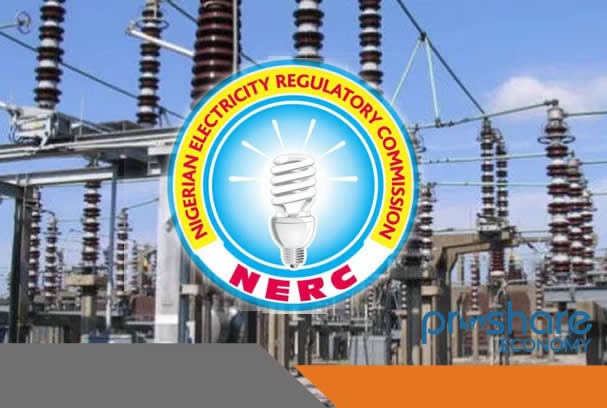
NERC Unveils Sweeping Reforms for Digitised, Transparent Electricity Revenue Collection Across Nigeria

In a bold move aimed at reshaping Nigeria’s electricity sector, the Nigerian Electricity Regulatory Commission (NERC) has released a comprehensive new set of guidelines that mandate a fully digitised, transparent, and accountable framework for electricity revenue collection. This development, which took industry stakeholders by surprise, signals a pivotal shift in how electricity distribution companies (DisCos) manage billing, payments, and customer interaction.
The guidelines, unveiled at a press briefing held at NERC’s headquarters in Abuja on Tuesday, are part of broader efforts by the Commission to tackle chronic issues of revenue leakages, customer dissatisfaction, and opacity in the nation’s power supply value chain. The move is expected to overhaul the legacy systems that have long hindered the efficient collection of electricity tariffs, which has contributed significantly to the financial instability plaguing the power sector.
Under the new directive, all electricity distribution companies are now required to adopt end-to-end digital platforms for their revenue collection processes. This includes electronic metering data management, real-time billing updates, automated reconciliation of payments, and the integration of digital wallets and banking services for seamless customer transactions. NERC insists that this transformation is not optional but a statutory obligation, with a grace period for compliance set at 90 days.
Dr. Sanusi Garba, Chairman of NERC, emphasized the urgency and importance of this development. “The era of opaque billing practices, missing records, and unverifiable cash collections must come to an end. These new guidelines are designed to instill discipline, improve operational efficiency, and build trust between electricity providers and consumers. It is a non-negotiable requirement moving forward,” he declared.
For decades, electricity consumers across Nigeria have decried issues such as estimated billing, arbitrary disconnections, and unexplained charges. The analogue nature of the old system has made it almost impossible for many customers to track their energy usage or verify their monthly bills. With the introduction of this new framework, customers will now have access to detailed digital records of consumption, real-time alerts on energy usage, and easy-to-use platforms for raising and resolving disputes.
The implications of this reform go beyond just improving customer experience. By plugging leakages in the collection process, the power sector stands to recover billions of naira in lost revenue annually. According to data from NERC, revenue shortfalls from poor collection and mismanagement have been among the top contributors to the sector’s financial woes, often leaving DisCos unable to meet their obligations to power generation companies (GenCos), gas suppliers, and the Transmission Company of Nigeria (TCN).
To ensure accountability, NERC has instituted a monitoring and enforcement mechanism that includes regular audits of DisCos’ revenue systems, customer satisfaction indices, and periodic publication of compliance rankings. Distribution companies that fail to meet the digitisation benchmarks or are found guilty of manipulating revenue data face severe penalties, including heavy fines, operational restrictions, and potential license revocation.
Reacting to the announcement, consumer advocacy groups and industry analysts have largely welcomed the development. The Nigeria Consumer Protection Network (NCPN), in a statement, praised the Commission’s proactive stance, calling it “a long-overdue intervention that aligns with global best practices in utility regulation.” NCPN President Kunle Olubiyo noted that for too long, consumers have borne the brunt of inefficiencies in the power sector, and this new framework has the potential to significantly tilt the balance toward greater accountability and service quality.
On the corporate side, however, there is a palpable mix of optimism and apprehension. Some DisCos have expressed concerns over the cost and timeline of implementation, citing the need for infrastructural upgrades, staff retraining, and data integration challenges. Nonetheless, most appear to be acknowledging the inevitability of the shift, with a few already announcing pilot programs and partnerships with fintech companies to fast-track compliance.
This latest reform also aligns with Nigeria’s broader digital economy strategy, which seeks to leverage technology to drive public sector transparency and enhance service delivery. The federal government, through the Ministry of Power and the Ministry of Digital Economy, has repeatedly stressed the need for digitisation across all sectors, and the power industry has been identified as a critical priority in this transition.
International observers and development partners, including the World Bank and USAID, have also shown interest in the reform, viewing it as a potential game-changer in unlocking investments in the electricity sector. A reliable and transparent revenue collection system, they argue, is a prerequisite for attracting capital, ensuring cost-reflective tariffs, and achieving long-term sustainability in energy supply.
Beyond the technicalities and policy frameworks, ordinary Nigerians are hoping the reform will finally deliver a more predictable, equitable, and efficient electricity billing system. In Lagos, Abuja, and other major cities, residents interviewed by this reporter expressed cautious optimism. “If this means no more crazy bills for light we didn’t use, then I’m all for it,” said Uche Okafor, a business owner in Surulere. “Let them just make it easy for us to see what we’re using and pay without drama.”
For a nation where electricity remains one of the most contentious and emotive public utilities, the stakes are high. Successful implementation of NERC’s digitised revenue collection framework could mark a turning point in the sector, restoring public confidence and setting the stage for broader structural reforms. But as always, the devil will be in the details — particularly how well the guidelines are enforced, and whether they translate into tangible benefits for both consumers and providers.
As the 90-day compliance countdown begins, all eyes will be on the DisCos and NERC’s enforcement machinery. For an industry long characterized by dysfunction and distrust, the hope is that this bold reform will finally usher in a new era of transparency, accountability, and digital innovation — one that powers not just homes and businesses, but a more credible future for Nigeria’s electricity sector.


